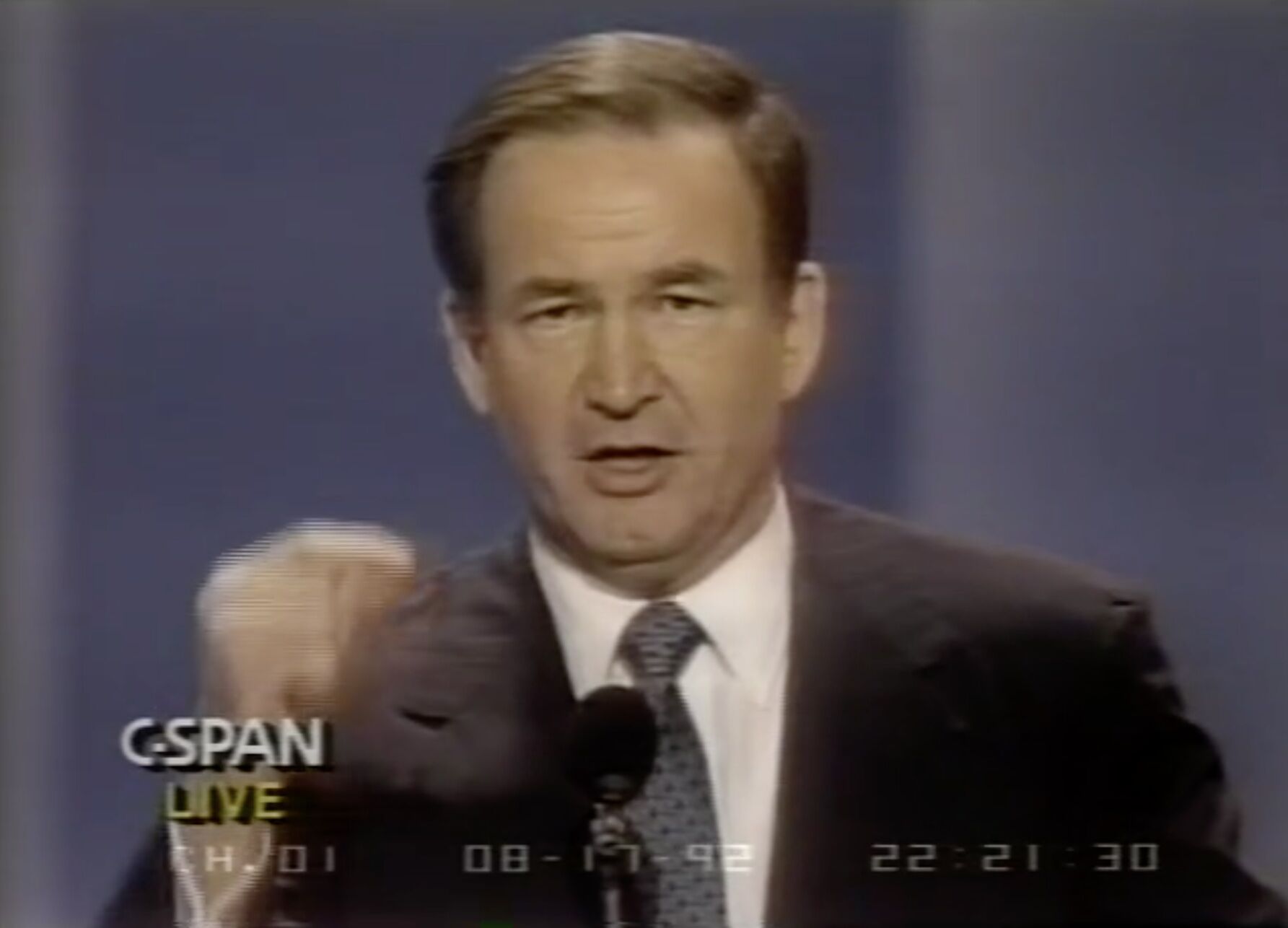
“A Cultural War”
At the 1992 Republican National Convention, presidential advisor, political commentator, and former presidential candidate Pat Buchanan let the prime time television audience know the country was engaged in “a cultural war”, one rooted in religious beliefs that had no place for abortion rights, gay rights, or equal rights for women. The black-and-white moralizing of Buchanan’s culture war merged neatly with the divisive characterizations of Republicans and Democrats being promoted by Gingrich and Luntz.
When Buchanan effectively merged the religious war on American culture with Gingrich’s war on politics, it put the big tent politics of the Democrats and the government squarely in the crosshairs of the attack.
In his speech, Buchanan lauded the religious values of the Republican nominee, incumbent George H. W. Bush, and contrasted them with the agenda of Democratic candidate Bill Clinton and his running mate, Al Gore.
First, Buchanan quoted “a militant leader of the homosexual rights movement” who, he said, was allowed to speak at the Democrats’ nominating convention to congratulate the party for putting forward “the most pro-lesbian and pro-gay ticket in history.”
He ridiculed Clinton for suggesting that together with his wife Hillary, Americans would get two for the price of one, accusing Hillary of believing that “12-year-olds should have the right to sue their parents” and comparing “marriage and the family as institutions to slavery and life on an Indian reservation”. As the New York Times explained one week after the speech, legal scholars say such criticisms are gross distortions of her work.
Buchanan concluded his attack, “This, my friends, is radical feminism. The agenda that Clinton & Clinton would impose on America – abortion on demand, a litmus test for the Supreme Court, homosexual rights, discrimination against religious schools, women in combat units – that’s change, all right. But it is not the kind of change America needs. It is not the kind of change America wants. And it is not the kind of change we can abide in a nation that we still call God’s country.”
Twenty years later, following the GOP nomination of Mitt Romney for president, the New York Times ran a story with this headline:
‘Cultural War’ of 1992 Moves In From the Fringe
Adam Nagourney, the Times’ writer, reported that many Republicans attributed Bush’s loss to Clinton in 1992 in part to Buchanan’s speech. In 2012, however, none said they were phased by such expressions of social conservatism. Nagourney pointed out that Romney, as the GOP nominee, is the “the embodiment of the party’s shift rightward”.

